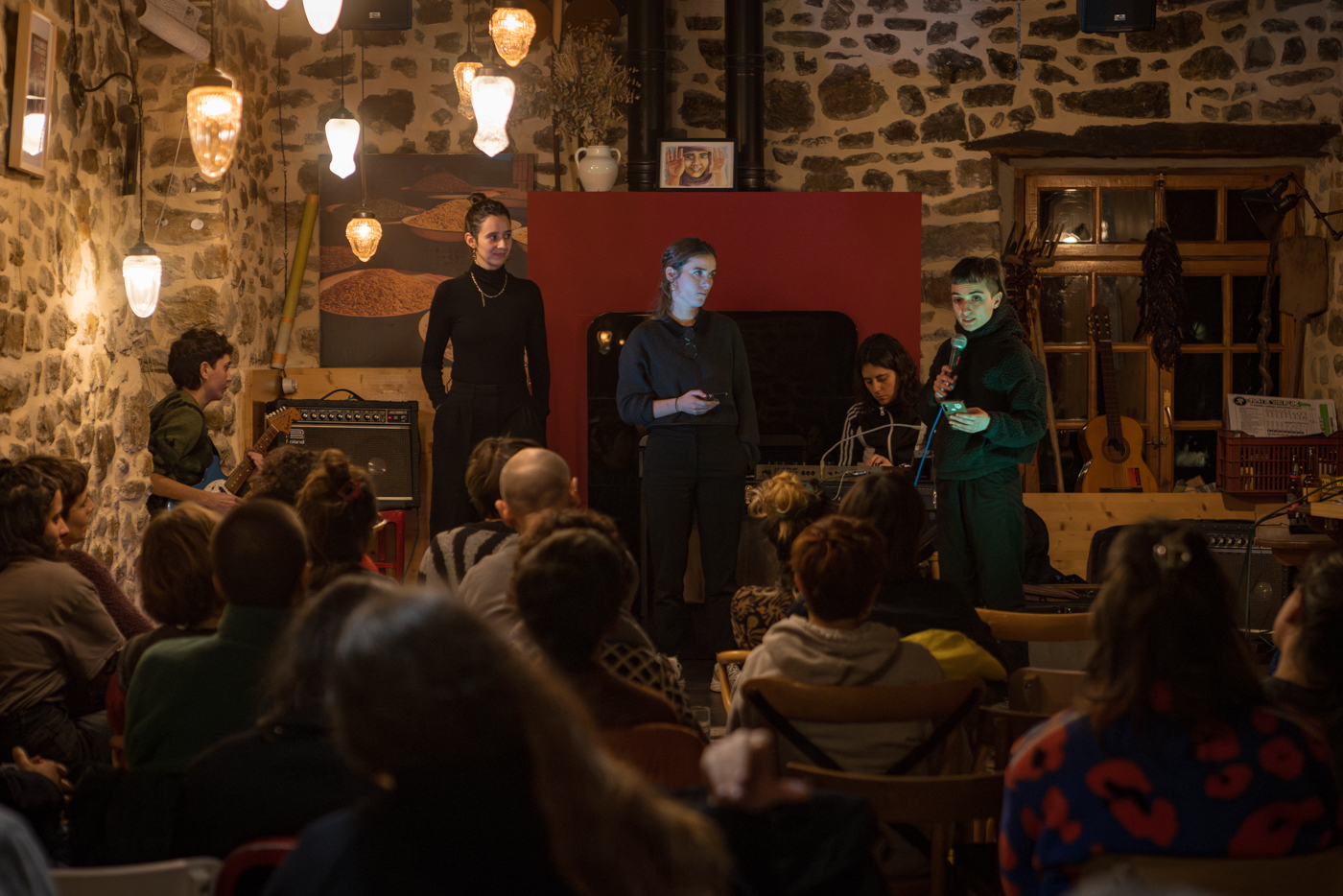"Sarrionandia offers us transparent clarity, without falling into insignificance and frivolity"
- On 1 and 2 February, on Friday in Iurreta and on Saturday in Donostia-San Sebastián, events will be held in which you will see the Hilda dago poetry of Joseba Sarrionandia translated into Catalan. It's the line of the book. These sessions, organized by Pamiela, will include the translators Ainara Munt Ojanguren and Víctor Sunyol. Poesia da morta? The book was published by Pol·len Edicions. We talked to Victor Sunyol about the poetry of Sarrionandia.

Som moros in the boira? (Are we Moors in the Fog?) Jo no sóc d’aquí, (I am not from here), and does poetry dwell?, (Has poetry died?) ). Three books by Joseba Sarrionandia in Catalan. Who is Sarrionandia for you?
I have long known the poetry of Sarrionandia, thanks to the monograph of the poetry magazine Reduccions that Jon Kortazar wrote in 1984 a long and extensive anthology of Basque poetry. Jon himself brought us albums from Ruper, among others, and in them we searched for poems from Sarrionandia and Atxaga. In 1986, a book on Sarrionandia's stories was published in Catalan. As well as being an intellectual referent, for me, Sarrionandia is a complete and profound writer.
What do you think of books?
I'm not from here, in Spanish. It was a tremendous surprise. Short essays, citations and reflections… are excellent, especially on their subject, more excelled in a concrete situation. These are very varied subjects, it is an obvious erudition: Sarrionandia's reflections are very clarifying and forceful.
We're moros in the fog, that's it. Masterpiece and famous multidisciplinary. By sections, the branches of the sections weave the main theme: the one relating to the condition of individual and collective human colonization. It shows at a very high level the present and the past, known or hidden, silenced or manifest. I have said that the main work, often used without reason, is here literal: “Main work”.
Has poetry died? Anthology was much needed for those of us who haven't read Sarrionandia in their language and what we read in other languages that we necessarily know. As an anthology of self-anthology, anthology has been naturalized by the author himself, it is his poetic self-portrait, so it is an intrinsic value. For us, having a Catalan edition is great news.
As a thinker and an intellectual, what have you underlined?
Its honesty, radicality, commitment… It has a broad vision, because it makes universality possible from the particular point of view. Its way of thinking and acting can be drawn as a river of multiple kinds: tributaries and subfluvial, hydrographic aspect, which gathers the waters and graves of different places – experiences – and which can lead to a height of water. His thought has come from experiences and learning to end knowledge and life.
And as a poet?
It offers us transparent clarity, without falling into nothing or lightness. His lyrical coming goes through themes and reflections, his voice makes us members of the community, it's a mirror, and we often don't like to see ourselves there. As his poetry emerges from experience, experience and the “poet self” disappear after poetic work. His is poetry, literature, not pamphlets or tears of misery, without references of self – always immoral –. His poetry is fierce in cold and always tempestuous reflection.
The virtue of his poetry, as superior, is enhanced by reflections on the topics he deals with. Hardness, criticism, tenderness, irony, hope, despair, bitterness, love, attack on powers (and counterpowers)… Their poems are never one record. They're like the world, like things, like us: complex and varied. It was literature.
Is Poesia biting? Is poetry dead?
After reading the great preamble of this anthology (all poets would have to be on the wall of our study to read it before it got to work), I can only repeat its last words: “Poetry is like Schrödinger’s cat, it’s both alive and dead.” So, read the prologue to understand it.
Astelehen honetan hasita, astebetez, Jon Miranderen obra izango dute aztergai: besteren artean, Mirande nor zen argitzeaz eta errepasatzeaz gain, bere figurarekin zer egin hausnartuko dute, polemikoak baitira bere hainbat adierazpen eta testu.
Martxoaren 17an hasi eta hila bukatu bitartean, Literatura Plazara jaialdia egingo da Oiartzunen. Hirugarren urtez antolatu du egitasmoa 1545 argitaletxeak, bigarrenez bi asteko formatuan. "Literaturak plaza hartzea nahi dugu, partekatzen dugun zaletasuna ageri-agerian... [+]
1984an ‘Bizitza Nola Badoan’ lehen poema liburua (Maiatz) argitaratu zuenetik hainbat poema-liburu, narrazio eta eleberri argitaratu ditu Itxaro Borda idazleak. 2024an argitaratu zuen azken lana, ‘Itzalen tektonika’ (SUSA), eta egunero zutabea idazten du... [+]



















